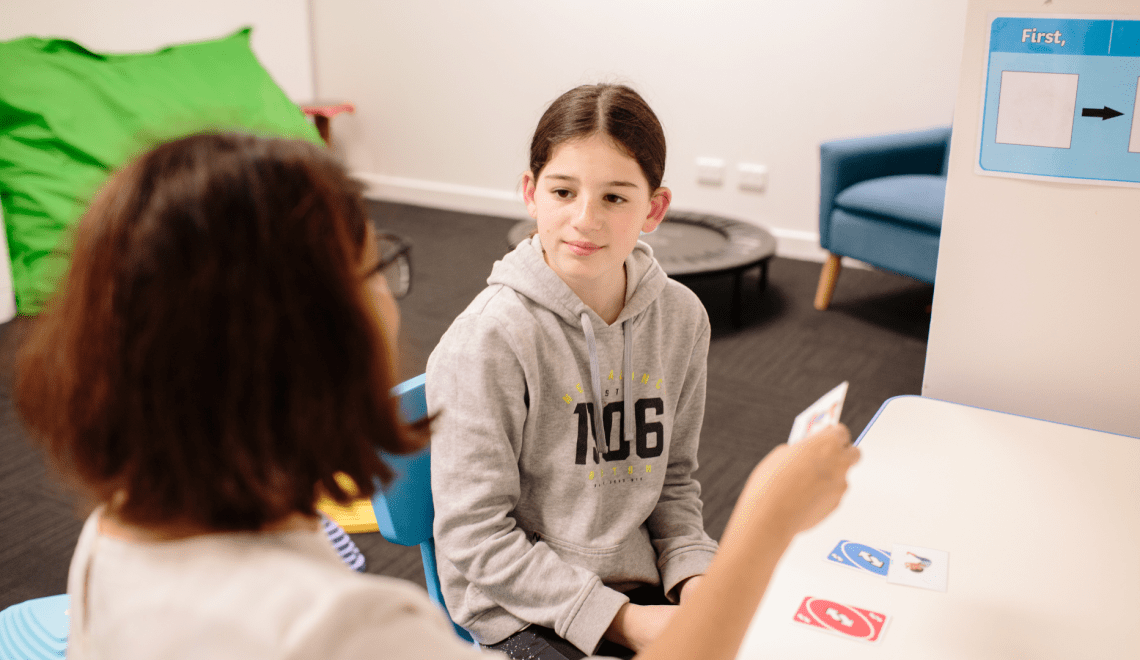
As parents, we always hope that everything is going to be A-OK with our kids, and that’s great; it’s called being a good parent. So, when issues arise like speech impairments or other learning difficulties, it’s easy to try to convince yourself that it’s just a phase and your child will grow out of it. This stops parents from seeking professional help way too often, but the truth is, the sooner you notice an issue and deal with it, the better off your kid will be.
So, with that in mind, this article will cover the signs that your child has a speech impairment and that they need to start speech therapy.
What is paediatric speech therapy?
Children can start learning to communicate verbally from as early as 12 months. During this time, a speech pathologist can work with infants to support the healthy development of their communication skills. These speech therapists aim to teach your child the fundamentals of communication so that they have a strong platform to build on when they start advancing.
They’ll teach them verbal, understanding, social skills, pronunciation, and vocal skills. These lessons can continue roughly till kids are three, until they start going to school, where teachers will take over teaching them to talk. However, if need be, kids older than three would be able to continue with lessons.

What does paediatric speech therapy treat?
A paediatric speech therapist will often treat children or infants who have speech or language disorders. They’ll aid the development of communication skills in these children by implementing different activities. These activities will all be aimed towards improving our child’s ability to communicate in verbal and non-verbal ways.
Common signs that your kid needs Speech Therapy
Your child will need speech and language therapy if they show signs of a speech and/or language delay or disorder. If you’re concerned about their development, start by paying attention to which age-appropriate speech and language milestones your child meets and which ones they don’t (yet). If you think your child needs support from a speech-language pathologist, don’t hesitate to book an evaluation!

What is the difference between having a language or speech disorder?
The difference might seem subtle to most people, making these two disorders seem like they’re the same. However, language disorders deal with your child’s ability to express themselves through their thoughts, ideas, and emotions. Speech disorders have to do with how they articulate their words and phrases. For instance, are they pronouncing letters correctly, and are they saying words wrong, etc?
Keep out for signs of a language disorder
In cases where a child needs speech therapy for a language disorder, there will be some tell-tale signs that you’ll notice. If you’re worried that your child might have a language disorder, look out for these signs:
- Not showing any signs of happiness or engaging with people.
- Not making random sounds or babbling
- Using only a small number of sounds or movements, such as pointing
- Lack of comprehension in children between 7 months and 2 years old.
- Only saying a limited number of words
- Struggling to understand words
- Not forming sentences yet by 2 to 3 years old
- Having difficulty engaging in play and conversation with peers
Listen for speech disorders
Children can just as easily have speech disorders. You’ll often hear toddlers struggle to pronounce letters like S or T. Many of us see this as normal, and our kids do tend to grow out of this, but it’s when these issues continue that you should consider taking your child for speech therapy. Here are some signs that your child might have a speech disorder and need therapy:
- Mispronouncing sounds like p, b, m, h, and w incorrectly in words at around 1-2 years old
- Saying k, g, f, t, d, and n incorrectly in words at the age of 2 to 3 years old
- Constructing confusing sentences over the age of two. Sentences, even if you struggle to understand
Get the evaluated
Here’s some good news. If you can pick up on any of these speech/language disorders early in your child there’s a good chance that a speech therapist would be able to help them correct these issues and grow up with effective communication skills.
For this reason, we’d urge you to consider taking your child for an evaluation as soon as you first notice any of the signs above. These days you can even get speech therapy online for your child so it’s super available. Don’t hesitate, it’ll have a significant long-term benefit for your child.
Frequently Asked Questions
What is the best speech therapy for a child?
Choosing a therapist is important because you want your child to trust them and listen to them. If they’re too boring or your child doesn’t like them, then the therapy might not go as planned. So, look for a therapist who’ll try to incorporate things your kid enjoys into the therapy sessions. This could be their favourite toy, meal, or even TV show. The more engaging the lesson is for your child, the better their learning experience will be, and the results as well.
What age should a child have speech therapy?
There’s no exact age to start sending your child for speech therapy. As we said earlier, paediatric speech therapists can start working with infants from 12 months old. So, the best way to gauge the best time to send your kid for speech therapy would be as soon as you notice any of the signs we mentioned above. Even if you haven’t noticed the signs we’ve mentioned but are still concerned, take your child for an evaluation. That’ll clear things up.









